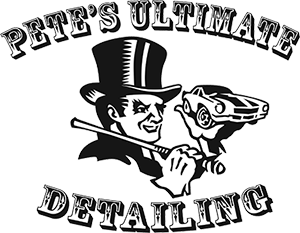Car & Marine Detailing FAQ’s
Frequently asked questions
|
Q: What is detailing? Q: How often should I have my vehicle detailed? Q How come the local car wash offers detailing at a much lower price? 2) They use cheap chemicals which only mask the problem and don’t last very long. 3) If they buff the paint they use a high speed buffer which can cause damage and 4) They often use dirty sponges, towels and waxing pads for the entire day and 5) They do this all in one hour and I have never seen it last much longer than a month. Q: What is Carnauba Wax? A: Carnauba wax is the preferred car wax of collectors and concours enthusiasts because it creates a rich, warm glow. It doesn’t appear to sit on the paint. It transforms the paint into a deep, liquid pool that shimmers under changing light conditions. The more carnauba wax, the more shine.The wax is produced by the Brazilian Tree of Life, a palm tree, in order to coat its leaves. The wax provides protection from the sweltering sun and it sheds water so it falls onto the ground and is absorbed by the tree’s roots. If you think back to junior high science class, you might remember that plants release oxygen through their leaves. For this reason, carnauba wax is breathable. Good for the tree and good for your paint. Carnauba is rock hard in its natural form. When the leaves of the Tree of Life are harvested, the wax flakes off as the leaves dry out, or they are put into a machine that removes the wax. It comes off in hard flakes. Car Wax makers have to blend the wax with oils, petroleum distillates, or a solvent called naptha (commonly used to thin wood varnishes and paints) in order to make the wax workable. The very best carnauba-based car wax is only about 1/3 natural carnauba. It’s probably for the best since the price gets higher and higher as the concentration of carnauba rises. When a product advertises “pure carnauba car wax” or “100% carnauba car wax”, they are referring to the purity of the carnauba that is in the product, not the product as a whole. That brings us to grading. Carnauba is harvested and then graded according to color, purity, and where it was grown. Trees grown in the northern area of Brazil produce the highest grade carnauba. The yellow wax is the most pure and therefore receives the highest grade. This is the grade most commonly used in high end car waxes and in the pharmaceutical industry as a pill coating. Some manufacturers refine the yellow wax again into an ultra-pure white wax to ensure that the wax produces the clearest, most reflective gloss once applied to the paint. As you’ve already read, carnauba protects the leaves of a palm tree from the intense heat and humidity experienced in Brazil. The carnauba car wax repels water and, consequently, most contaminants. When applied to any surface, carnauba retains these characteristics. Therefore, an application of a carnauba-based car wax to your vehicle will protect it from UV rays, heat, moisture, oxidation, and environmental contamination. And it looks like a million bucks! The drawback of carnauba waxes, if you can call it a drawback, is that it does not last as long as a synthetic sealant. A carnauba car wax finish will wear off in approximately 6 to 8 weeks. It depends heavily on the climate in which you live and whether or not your vehicle is garaged. Daily commutes in a hot, humid climate mean a shorter life span for your carnauba wax coat. |
Q: Why should I have my new car detailed? Q: Why should I have my engine detailed? Q: What is Paint Sealant? A paint sealant is made of polymers, which are composed of tens of thousands of synthetic particles that are linked together. When a sealant bonds to your vehicle’s paint, it forms a rigid shell. It is not the warm carnauba that seems to melt into the paint. Paint sealants sit on top of the paint like a transparent chain metal suit. They are glossy and slick, but carnauba lovers will tell you they do not have the warmth and depth of a carnauba. Paint sealants have gotten progressively more popular as time goes on. Some people really love the hard-as-glass look. In an industry that is driven by technology, it seems appropriate that an engineered paint protector is the new favorite among many detailers. However, the real selling point of a paint sealant is the durability. A premium paint sealant can last 4 to 6 months, some can last up to 12 months. By “last”, I mean that water will continue to bead and the paint will remain protected from UV rays and contamination. For people that spend more time driving than detailing, the paint sealant is the way to go. As you’ve seen, there are a lot of differences between paint sealants and natural carnauba waxes. Glassy, hard shell or deep, liquid shine? Six months or six weeks? These are the basic questions you have to answer before selecting your paint protection. However, a growing number of enthusiasts simply refuse to choose. Instead, they coat their vehicles with a layer of sealant for long-lasting protection and then top it with a layer of carnauba for the dazzling shine. Even if you forget to reapply carnauba in 6 weeks, your paint won’t suffer. Remember, paint protection is one of your vehicle’s basic necessities. |



